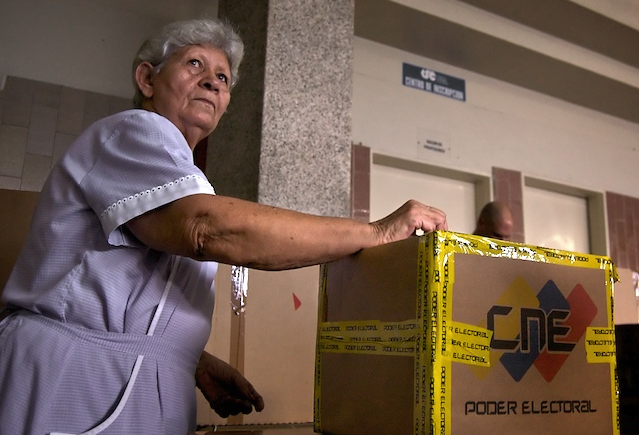In Venezuela, there is a “deterioration of the rule of law in a context of serious human rights violations”, which has resulted in an electoral process with “insufficient democratic conditions”. These phrases were pronounced by Jordi Cañas, head of the European Parliament’s observation of Venezuela’s 2021 regional elections, at the time of presenting the report of the European Union (EU) Electoral Observation Mission (EOM). The findings of the report were so forceful with the Maduro government that it could not be presented in Caracas, although the agreement between the National Electoral Council (CNE) and the EU stipulated so.
The 2021 EOM of the EU was the last intensive deployment in Venezuela of a professional and technical organization that applies a rigorous methodology to account for how an electoral process is held. Before this, we have to go back to the 2006 presidential elections, in which different specialized organizations participated, such as the Organization of American States (OAS).
This EOM allowed for an exhaustive analysis of the conditions under which electoral processes are held in Venezuela. Although this was a regional election, so that the power of the national government was not directly threatened, the systematic irregularities and bad practices promoted by the government to prevent fair competition to the detriment of the opposition forces could be observed.
The EOM report provides 23 recommendations, although it considers 7 to be fundamental or a priority if progress is to be made toward free and competitive elections: 1) separation of powers; 2) abolish the prerogative of the Comptroller General of the Republic to strip citizens of their political rights; 3) voter education campaign to promote confidence in voting; 4) strengthen the sanctioning powers of the CNE; 5) balance the campaign coverage of the state media; 6) repeal the Law against Hate, for Peaceful Coexistence and Tolerance; and 7) improve the information campaign to citizens about their selection as table members.
Evidently, in light of the 2024 process, it is clear that the Venezuelan government has not taken these recommendations seriously. Not only that, it has gone so far into arbitrariness that the former head of the Office of the Comptroller General of the Republic, who was responsible for disqualifying leaders such as María Corina Machado or Henrique Capriles, is now the highest representative of the Electoral Power.
On the other hand, no efforts have been made to strengthen the rule of law. The coverage of the public media benefits the ruling party and covers the opposition only to discredit it, and if the law against hate is concerned, not only has it not been repealed, but the National Assembly is currently threatening to pass the law against fascism and the law to regulate civil society, both instruments designed to criminalize and censor democratic sectors.
Furthermore, the registration and updating of data in the Electoral Registry has been heavily obstructed, leaving more than 5 million Venezuelans living abroad, and millions in Venezuela, out of the electoral roll.
Other issues of concern to the EU European Observation Mission, such as the extortion in the use of the Plataforma Patria, the obstacles to the political participation of women (the only woman who pretended to be a candidate and won the opposition primaries was illegally disqualified), the indiscriminate use of state resources in favor of the ruling party or the limitations to electoral observation, were disregarded.
To all this context that seriously (and we will see if definitely) affects the integrity of the electoral process, we must add the persecution suffered by María Corina Machado’s team, which has left the regrettable balance of several political prisoners, six asylum seekers in the Argentine embassy in Caracas and dozens of small businessmen sanctioned for collaborating with Machado’s and the opposition’s activities in the interior of the country.
The European Union even lifted individual sanctions against CNE officials, among them its head, Elvis Amoroso, as an offering to receive an EOM. However, the answer came this Tuesday, May 28, barely two months before the elections, when Amoroso himself announced the revocation of the invitation.
Why does not Maduro want an EU mission? It is not, as Amoroso explained, because of its “historical colonialist position” and the imposition of sanctions. Let us remember that the head of the CNE was sanctioned in 2020, and yet in 2021 Venezuela received the European delegation.
The real reason is that the electoral conditions are even worse than in 2021, and the popular support for the opposition is much stronger. Different polls assure that Edmundo Gonzalez has a 30 points higher voting intention than Maduro.
An election with arbitrariness, malpractices, opportunism, persecution, and all the expected autocratic catalog, but observed by the international community and controlled by the opposition parties, is impossible for Maduro to win.
*Translated by Janaína Ruviaro da Silva from the original in Spanish.













